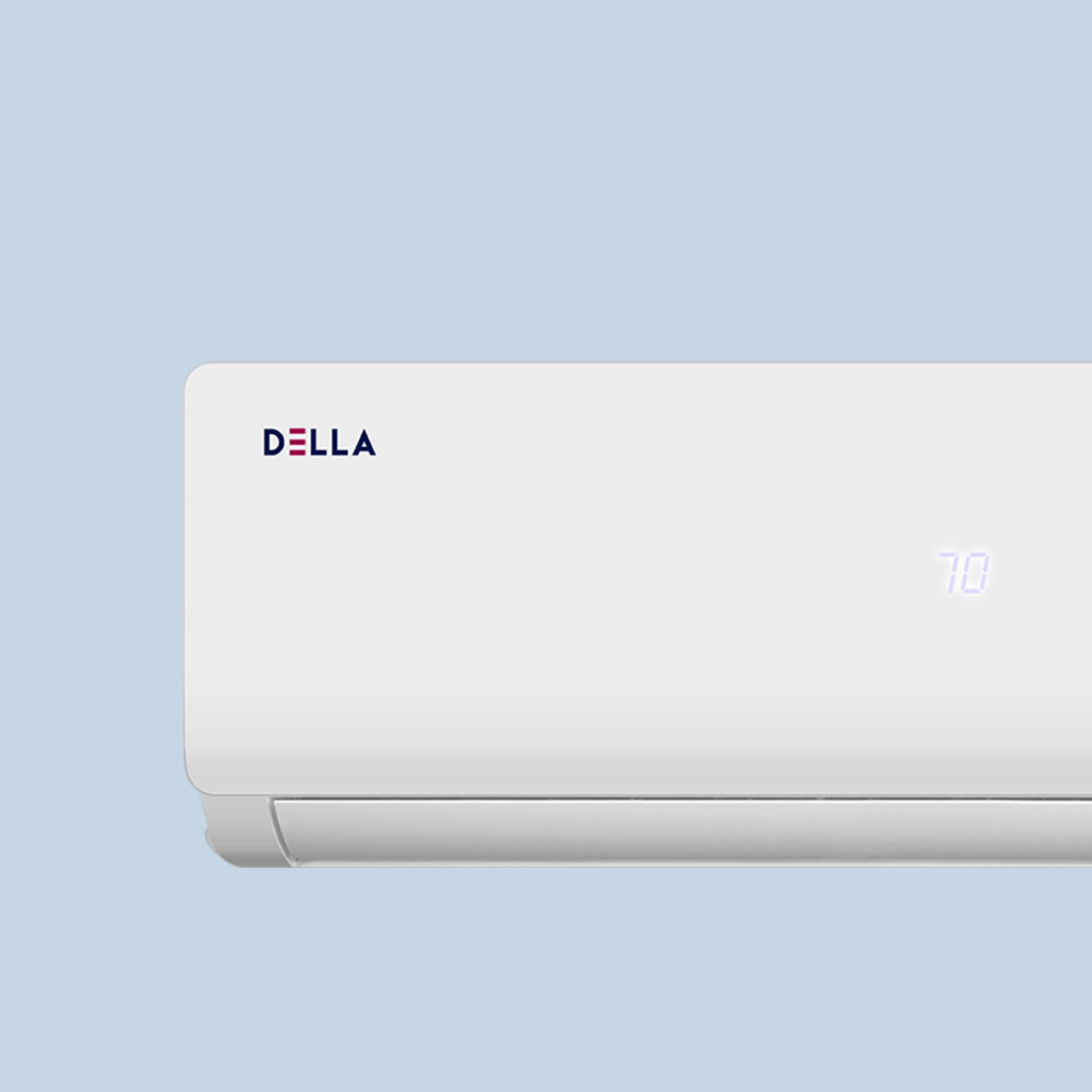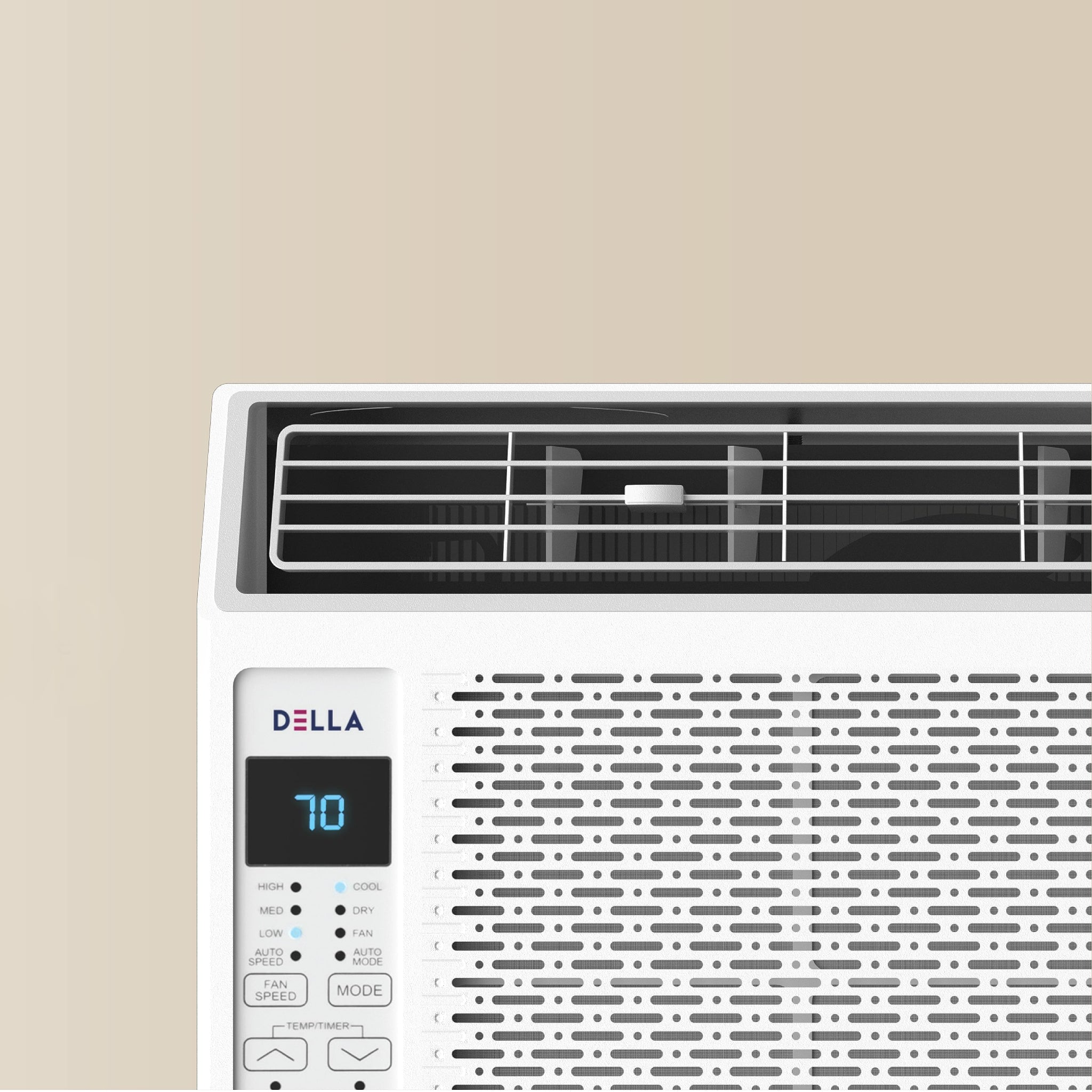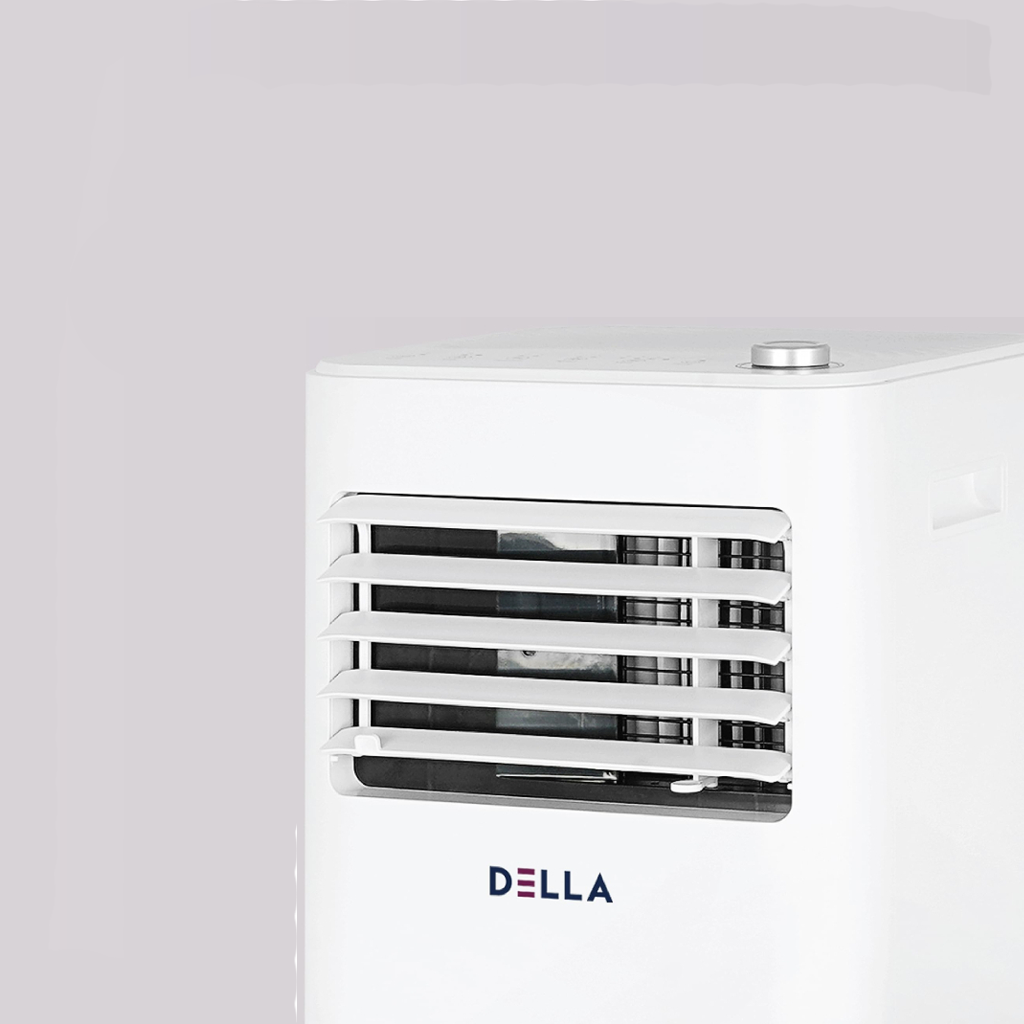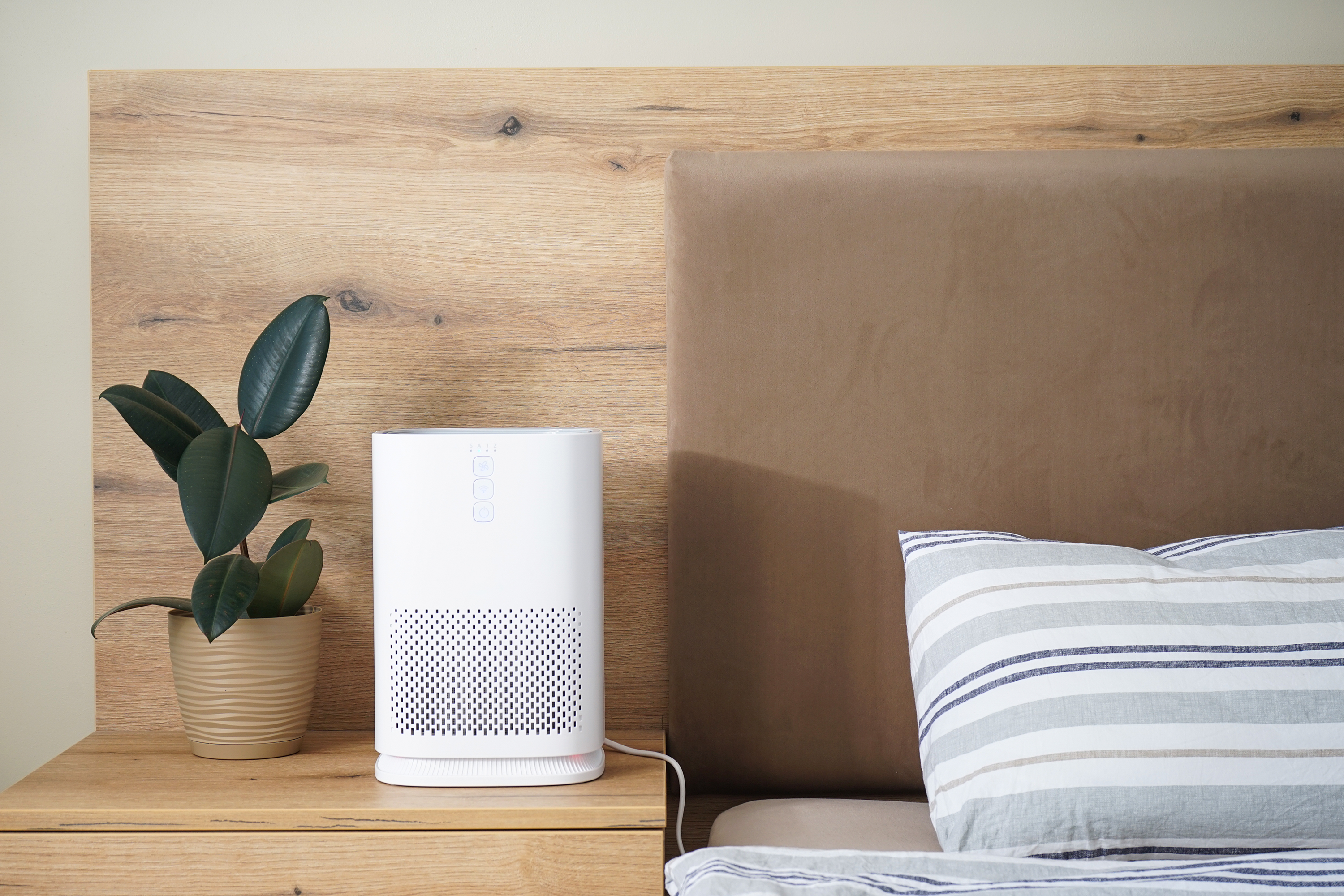When it comes to staying cool and comfortable during hot summer months, air conditioning is a must-have in most homes. With all of the different types of air conditioning units available, it can be tough to know which one is right for you. In this blog post, we'll take a look at some of the most common types of home air conditioners and their pros and cons.
Home AC History and How it Works
As discussed in our previous blog, the history of the air conditioner is a testament to human ingenuity in the face of discomfort. Willis Haviland Carrier, an American engineer, is widely recognized for inventing the first modern air conditioning system in 1902.
Carrier's design was initially intended to control the humidity in a New York publishing house, ensuring consistent paper dimensions and ink alignment. However, it quickly became apparent that the potential of conditioned air extended beyond industrial applications. As technology advanced, air conditioners became more efficient and accessible, making their way into homes, offices, and other establishments by the mid-20th century.
Today, general air conditioners function by exploiting the principles of thermodynamics, specifically the phase transition of refrigerants. At its core, an air conditioner moves heat from inside a space to the outside, thereby cooling the interior. It employs a closed-loop system containing a refrigerant that circulates through a series of coils and components.
The process begins in the evaporator coil; here, the liquid refrigerant absorbs heat and evaporates it into a gas. This cooled air is then blown into the room. The gaseous refrigerant then moves to the compressor, which pressurizes and heats it. As it flows to the condenser coil outside the space, it releases the absorbed heat to the outside environment and condenses back into a liquid. This cycle repeats continuously, effectively reducing the indoor temperature. Additionally, air conditioners often have a dehumidifying function, which removes moisture from the air, further enhancing comfort levels.
8 Different Types of Air Conditioner Units
There are many options when it comes to keeping your home cool, and Angi lists 8 different types of air conditioners to choose from for your home.
Window Units
Perhaps the most common type of air conditioner worldwide, window units are installed directly into a window and are designed to cool a single room. They're often the most cost-effective option for air conditioning, and they're easy to install and uninstall. However, they can be quite loud and they block natural light from the window.
Pros: Not difficult to install, budget-friendly, energy-efficient, and supplement other AC systems.
Cons: Only cools one room, can’t cool in higher temperatures, blocks windows, and is noisy.
Portable Units
Portable air conditioning units are similar to window units, but they don't require installation into a window. They're often more expensive than window units, but they're more versatile and can be moved from room to room. The downside is that they can be just as loud as window units, and they take up floor space.
Pros: Easy to install, relatively affordable, portable, best for temporary cooling solutions, can support other AC systems.
Cons: Cooling abilities are limited, not ideal for large rooms or homes, bulky, and noisy.
Central Air
Most residential spaces prefer the reliability of central air conditioning systems. Among the sought-after cooling solutions, central ACs stand out for their proven efficiency. They come in two main configurations: the split systems and the packaged units. While the latter is predominantly seen in commercial setups, split-system central ACs consist of an exterior unit housing a heat exchanger, fan, and compressor. Simultaneously, its interior counterpart encompasses another heat exchanger and a blower, responsible for distributing cool air throughout the residence using ductwork.
Pros: Efficiently cools the entire home, easy to use, plenty of options available, the most familiar system for installers.
Cons: Relatively expensive, requires ductwork and vents, requires more maintenance.
Ductless Mini Splits
Ductless mini-split air conditioners are similar to central air systems, but they don't rely on ductwork to distribute air throughout a home. Instead, they use individual units to cool specific rooms or zones. They're often more efficient than central air systems, and they're easier to install since they don't require any ductwork.
Pros: Requires no ductwork, easy to install, flexible install locations, allows for multiple room temperature zone control, quiet, energy-efficient, and includes a cost effective heat pump feature.
Cons: Can cost more than central air upfront, lower-performing air exchanger, need multiple units to cool an entire home.
Floor-Mounted Air Conditioner
Floor-mounted air conditioners, often referred to as floor-standing units, are positioned at or near floor level, making them particularly suitable for rooms with limited wall space or large glass expanses. They can be an excellent choice for spaces with high ceilings where wall-mounted units might not be as effective in distributing cool air uniformly. Despite being bulkier than wall-mounted variants, they can be seamlessly integrated into the room's decor, and some models come with wheels for easy mobility. Proper placement is crucial to avoid obstructions and ensure optimal airflow, and as with any air conditioning system, regular maintenance is key to keeping them running efficiently.
Pros: No ductwork required, more positionable than other options, easier to maintain, create multiple temperature zones.
Cons: More expensive than wall-mounted mini splits, takes up floor space, accumulates dust within its vicinity.
Air-Source Heat Pumps
Air-source heat pumps (ASHPs) are advanced heating and cooling systems that exploit the temperature differentials between the ambient air and a building's interior to either heat or cool a space. Unlike traditional furnaces which generate heat, ASHPs transfer heat, making them highly efficient and eco-friendly alternatives to conventional HVAC systems. During colder months, the system extracts heat from the outside air, and amplifies it before distributing it inside the building. Conversely, in warmer periods, the process is reversed: the ASHP extracts heat from inside the building and releases it outdoors, thereby cooling the interior. This dual functionality offers a compact solution for year-round climate control while significantly reducing energy consumption and greenhouse gas emissions compared to traditional fossil fuel-based systems.
Pros: Best for homes in mild climates, cools the entire home, also provides heat, energy-efficient.
Cons: Higher than average upfront costs, noisy, doesn’t work as well in freezing weather.
Geothermal Air Conditioning System
A Geothermal Air Conditioning System, often referred to as a geothermal heat pump or ground-source heat pump, harnesses the steady temperature of the Earth to provide energy-efficient cooling (and heating) for buildings. Unlike traditional air conditioning systems that rely on the fluctuating outside air temperature, a geothermal system utilizes the consistent thermal properties of the ground. By circulating a heat-absorbing fluid through a series of buried pipes or loops, the system can dissipate heat into the ground during the summer months or extract heat from the ground in the colder months. This method not only offers substantial energy savings but also reduces greenhouse gas emissions. Moreover, the system's longevity and minimal maintenance requirements make it an attractive and sustainable solution for those looking to combat the challenges posed by climate change while also ensuring comfort indoors.
Pros: Heats and cools a home, eco-friendly, quiet, less maintenance and utility costs.
Cons: One of the most expensive options upfront, involves digging in your yard.
Evaporative Air Conditioner
An evaporative air conditioner, commonly referred to as a swamp cooler, is a device designed to cool air through the evaporation of water. Unlike traditional refrigeration-based air conditioners that use refrigerants to absorb and remove heat from the air, evaporative air conditioners rely on the natural principle of water evaporation absorbing heat. As warm air is drawn into the unit, it passes over water-saturated pads where evaporation occurs, thereby cooling the air. This cooled, moist air is then circulated throughout the space. Evaporative air conditioners are especially efficient in dry, arid regions because they not only reduce temperatures but also introduce moisture into the air, improving indoor comfort. They are also eco-friendlier since they don't use harmful refrigerants and typically consume less electricity compared to traditional air conditioning units.
Pros: Uses less energy than standard central air, can lower temperature in a home by 20 degrees on average, requires less maintenance.
Cons: Only viable in arid climates, consumes a lot of water, difficult to cool when temperature is above 95 degrees.
2023 Smart Features of AC Units
With all the developments of technology, AI, and automation, consumers are now desiring smart ACs to complement their smartphones, smart devices, and smart homes. The most common smart features that are available include:
-
Automatic thermostat activation
-
Timed operation
-
Voice control
-
Bluetooth and WiFi connectivity
-
Touch controls
-
Remote control from smartphone
Tips for Picking an AC for Your Home
Choosing the right air conditioner for your home is crucial for ensuring optimal comfort and energy efficiency. Firstly, determine the appropriate sized unit for your space; an undersized AC will struggle to cool the area effectively, while an oversized unit can result in excessive energy consumption and uneven cooling. Utilize a BTU (British Thermal Units) calculator or consult with a professional to assess your needs based on the square footage of the space and other factors like insulation, ceiling height, and sunlight exposure. Next, consider the energy efficiency rating, often denoted as SEER (Seasonal Energy Efficiency Ratio) in the U.S.; a higher SEER indicates a more efficient unit, potentially leading to lower energy bills. Opt for units with programmable thermostats or smart features, as these can further enhance efficiency and offer more precise temperature control. Finally, assess the noise level, especially if the unit will be near sleeping areas, and ensure the model has a good filter system to maintain air quality in your home.
A Piece of Advice
There are many different types of home air conditioners available, each with its own pros and cons. The right type for you will depend on your individual needs and budget. Whether you opt for a window unit, a portable unit, central air, or a ductless mini-split, staying cool during the hot summer months is essential for both your comfort and your health. Della offers a wide range of growing solutions so we can serve everyone’s needs.
Doing research and speaking with homeowners and professionals will ensure you choose the best AC system for you and your family. If you haven’t already, make sure to check out the rest of our blogs and resources to gain more insight and knowledge on all things air and HVAC. At Della, we’re committed to providing educational resources so that you have all of the information you may need to understand your home’s AC system; thus, helping you make the best decision for you and your home.















